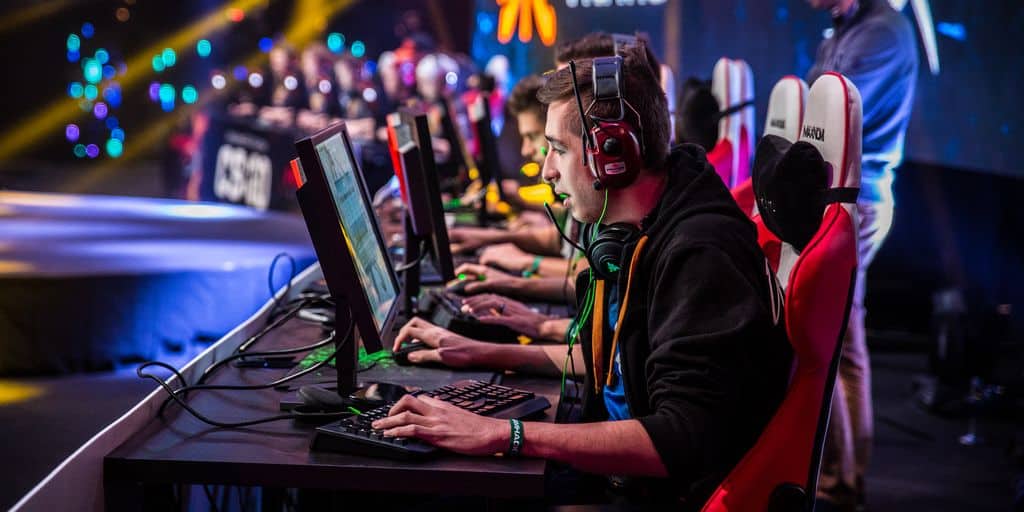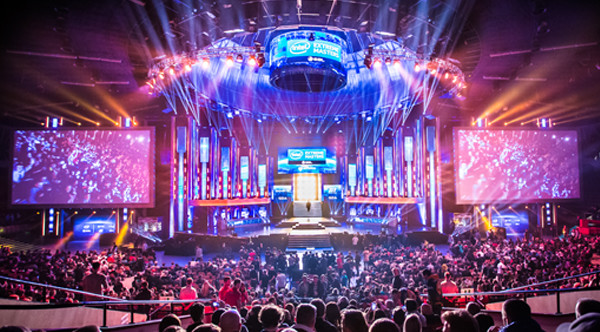A Complete Guide on The World of E-Sports: Their Impact on Society and Culture


E-games or Esports, also known as electronic games/sports or video games, have become a significant part of modern-day entertainment and culture. With the rise of technology, the gaming industry has experienced explosive growth, with millions of people worldwide now participating in e-gaming as a hobby or profession. This topic will explore the world of e-games, their impact on society and culture, and the future of the gaming industry.
The Evolution of E-Games: From Arcade to Online Gaming

The evolution of e-games has been a remarkable journey, starting from arcade games in the early 1970s to online gaming in the present day. Arcade games were the first electronic games that gained mainstream popularity and were enjoyed by people of all ages. With the advent of personal computers in the 1980s, gaming consoles like Atari and Nintendo emerged, introducing a new generation of gaming experience. In the 1990s, with the widespread adoption of the internet, online gaming emerged, allowing players to connect with each other worldwide.
Today, e-games have taken on a new level, with advancements in graphics, sound, and processing power, making it possible to create immersive and realistic virtual worlds. The evolution of e-games has been an exciting ride, and with continued technological advancement, it’s exciting to see where it will lead us in the future.
The Popularity of E-Games: Why Are They So Addictive?
E-games have become incredibly popular and addictive for a variety of reasons. First and foremost, they offer a sense of escapism, allowing players to immerse themselves in a virtual world and temporarily forget about their daily stresses. E-games also provide a sense of accomplishment, as players work to complete levels, defeat bosses, or achieve higher rankings. Additionally, the social aspect of e-gaming has played a significant role in its popularity.
Online gaming allows players to connect with others worldwide, building friendships and communities around shared interests. Lastly, e-games are designed to be rewarding, providing players with a constant stream of positive feedback in the form of points, rewards, and achievements. With these factors combined, it’s no surprise that e-games have become one of the most popular forms of entertainment in the world.
E-Games as a Profession: The Rise of Esports

E-games have now become a profession for many people, thanks to the rise of esports. Esports refers to competitive video gaming, where players or teams compete against each other in organized tournaments or leagues for prizes and sponsorships. Esports has grown rapidly in recent years, with a massive following and a multi-billion dollar industry. Professional esports players are now treated like traditional athletes, with sponsorships, fan bases, and even celebrity status.
Esports has also opened up new job opportunities in the gaming industry, such as game developers, commentators, and event organizers. The rise of esports has brought legitimacy to the world of e-gaming and has provided a path for passionate gamers to turn their hobby into a career.
The Dark Side of E-Gaming: Addiction, Violence, and Gambling

While e-gaming has many positive aspects, it also has a dark side. One of the most significant negative consequences of e-gaming is addiction, which can lead to neglect of personal and professional responsibilities, poor mental health, and physical problems. E-games can also promote violence, with some games containing graphic content that can desensitize players to violence or encourage aggressive behavior.
Additionally, gambling has become a significant issue in e-gaming, with loot boxes, in-game purchases, and betting contributing to a growing problem. Players can spend large amounts of money on these features, leading to financial problems and gambling addiction. The gaming industry must take responsibility for these issues and work to ensure that e-games are designed with the well-being of players in mind.
Positive Impacts of E-Games: Mental Health, Education, and Socialization
E-games also have positive impacts on mental health, education, and socialization. Studies have shown that e-games can improve cognitive function, enhance problem-solving skills, and increase creativity. They can also help alleviate stress and anxiety, providing a healthy outlet for emotional expression. In terms of education, e-games have been used in classrooms to teach subjects like history, science, and math in an engaging and interactive way.
E-games can also promote socialization, allowing players to connect with others who share their interests and build meaningful friendships. Online gaming communities can also provide a sense of belonging for people who may struggle to connect with others in traditional social settings. Overall, e-games have the potential to provide many positive benefits to players and society, and it’s essential to recognize and promote these benefits alongside addressing the negative consequences.
The Future of E-Gaming: Technological Advancements and New Gaming Trends

The future of e-gaming looks bright, with continued technological advancements and new gaming trends emerging. One of the most significant trends is the integration of virtual reality (VR) and augmented reality (AR) into e-games, creating more immersive and interactive experiences for players. Another trend is the rise of mobile gaming, with smartphones becoming more powerful and accessible, allowing people to play games anywhere and anytime.
The increasing use of artificial intelligence (AI) in e-games is also expected to revolutionize the industry, with AI-powered games providing more personalized and adaptive experiences for players. Furthermore, esports is expected to continue to grow, with larger tournaments, more sponsors, and higher payouts. As technology continues to advance and new trends emerge, it’s exciting to see how e-gaming will evolve and what new innovations will be introduced.
E-games have become a significant part of modern-day entertainment and culture, with millions of people worldwide participating in e-gaming as a hobby or profession. While e-gaming has its negative consequences, such as addiction and gambling, it also has positive impacts on mental health, education, and socialization. As technology continues to advance, the future of e-gaming holds exciting possibilities and new trends.
READ MORE: Team Fight Tactics (TFT) 13.7 Early Patch Notes: All PBE Balance Changes So Far












